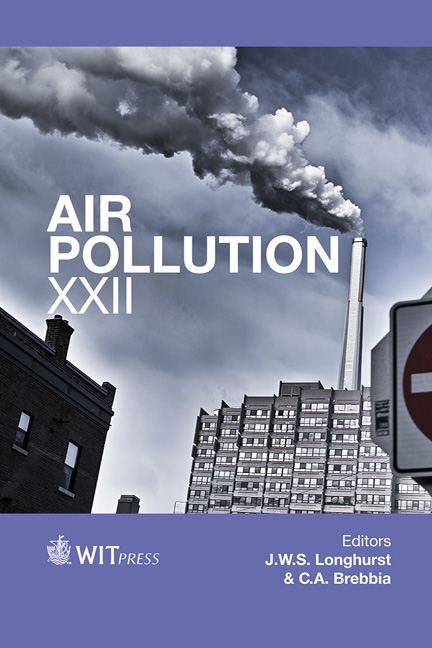The Effects Of Gas Cooling On Removal Of SOF And Sulphate By Electrostatic Precipitator For Marine Diesel
Price
Free (open access)
Transaction
Volume
183
Pages
12
Page Range
165 - 176
Published
2014
Size
830 kb
Paper DOI
10.2495/AIR140141
Copyright
WIT Press
Author(s)
A. Zukeran, Y. Sakuma, R. Yamagami, Y. Kawada, H. Kawakami, K. Yasumoto, T. Inui & Y. Ehara
Abstract
Particulate matters (PM), SOx and NOx in exhaust gases emitted from marine diesel engines may cause serious problems in human health and coastal environments. Therefore, their emissions have been regulated in MARPOL Treaty 73/78 Annex VI of IMO Air Pollution Control since 2005. In this paper, the reduction of PM for marine engines was investigated using an electrostatic precipitator (ESP) with a heat exchanger. Experiments were carried out to confirm the reduction of PM, which were Dry soot, Soluble Organic Fraction (SOF) and sulphate. The experimental system consisted of a diesel engine, a heat exchanger and an ESP. The exhaust gas at a temperature of 180°C was cooled to 20°C in the heat exchanger, whereby particles of SOF and sulfuric acid were generated due to condensation. These particles were collected in the ESP. The particle concentrations were measured using a low-volume air sampler, a soxhlet extractor and an ion chromatograph. As a result, the gaseous SOF was condensed to particulate matter due to gas cooling. This particulate matter was collected by ESP, whose removal efficiency exceeded 85%. The removal efficiency of sulphate was also improved.
Keywords
marine diesel, electrostatic precipitator, particulate matter, soluble organic fraction, sulphate.





